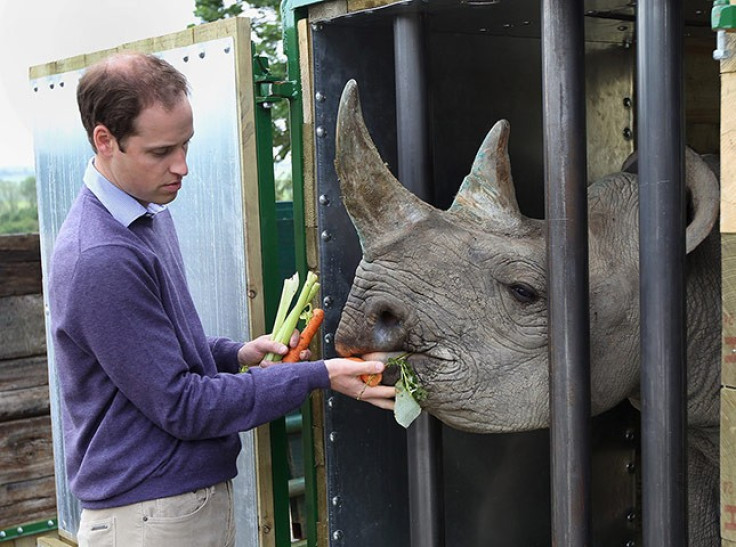British Zoos on High Alert as Poachers Target Captive Rhino

A plan by poachers to target rhinos in British zoos for their rare and valuable horns has been thwarted by police in Kent.
An anonymous tip-off led to night-time patrols being stepped up this week at the Port Lympne and Howletts wildlife parks near Canterbury, both of which are run by the Aspinall Foundation.
"We had a call from Kent Police saying they had been informed through Crimestoppers that someone intended to harm our rhino," said Bob O'Connor, the managing director of the parks.
"Apparently, they had the information come through Crimestoppers. The terminology that was used was, 'Rhinos are going to be harmed'.
"The police are taking it seriously enough to visit us, so we've got to take it seriously as well. The keepers are now on the lookout for intruders."
Attempts by criminals to poach rhino have increased in recent years, said O'Connor, who pointed to "a trend for breaking into museums and stealing stuffed rhino heads for their horns, including one recently in Kent".
The parks' 20 rhino are kept locked up at night, with keepers who live on site at the parks carrying out overnight patrols. Parks authorities have now launched an appeal to the public to help man the patrols.
"With this level of threat, and it's impossible to judge what the threat is, we have now stepped up those night-time patrols and we are asking local people to work with our staff to increase the number of patrols," the Aspinall Foundation said in a statement.
Black rhinos are prized for their horns, which are valued in traditional medicine and fetch up to £200,000.
"We take every threat seriously, especially when it deals with the rhinos," said Michael Laidlow, the wildlife and rural environmental crime co-ordinator for Kent Police. "We've taken steps to deal with it by informing the park and making officers aware of what the threat is."
Thirty-three black rhino have been born in the foundation's parks over the past seven years, and some of the critically endangered species have been returned to the wild. Last year three animals from Port Lympne were released in Tanzania.
Damian Aspinall, chairman of the foundation, said: "It is tragic and beyond belief that, as we do everything possible to restore these magnificent animals safely to the wild, the human traders who seek to profit from their slaughter should bring their vile activities to the UK."
Prince William spoke out against the illegal trade in rhino horn after visiting Port Lympne last June, describing poachers as "ignorant, selfish and utterly wrong".
There are fewer than 29,000 rhino in Africa and Asia today, compared to 500,000 in 1900. The powdered horn is used as an aphrodisiac and treatment for cancer in Chinese medicine.
© Copyright IBTimes 2024. All rights reserved.





